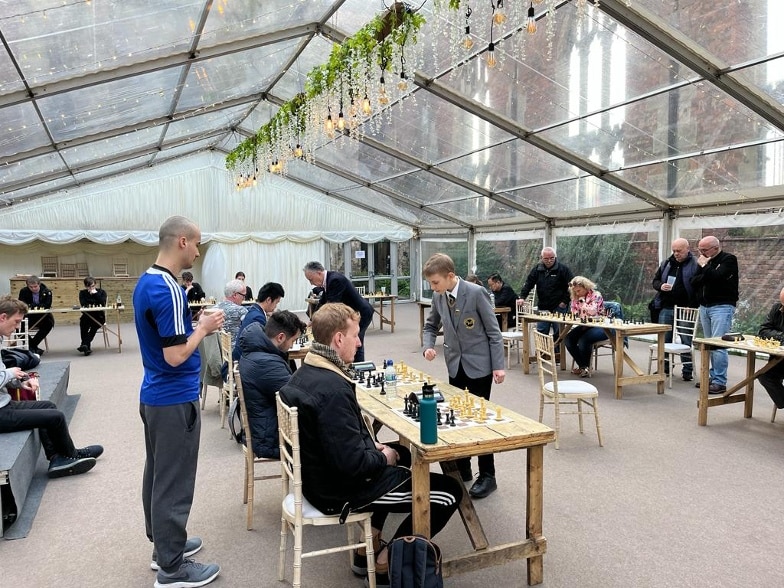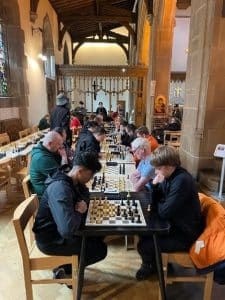The history of chess is full of tales of hard work, determination and triumph and Liverpool-based prodigy Svyatoslav Bazakutsa’s story is no different. As the UN marks World Chess Day (20 July), UNRIC spoke to the young Ukrainian chess player and his mentor, International Master Malcolm Pein, about the role of chess in promoting cooperation, education and social inclusion.
A story of resilience
The first time a then 5-year-old Svyatoslav set eyes on a chess board, he was hooked. A few years later he enrolled at the local chess section in his home city of Chuguev, Ukraine, and began making a name for himself on the national and international chess scene. In 2017, he was ranked number one in the world for players under-9, and in 2020 and 2021 was crowned Ukrainian champion in his respective age divisions.
However, the outbreak of fighting in Kharkiv in 2022, where he was living at the time, risked putting a stop to the teenager’s burgeoning career.
Svyatoslav and his mother fled to the UK and, with help from the English Chess Federation, settled in Liverpool. He is now training to achieve his dream of becoming world champion. And he is making good headway. Last year, he took home gold in the under-14 category at the European youth classic and rapid chess championships.
But, for Svyatoslav there is a lot more to chess than amassing titles and trophies. Since arriving in the UK, chess has helped him integrate into British society. Proudly sporting his North Liverpool Academy school uniform, he recently gave a 20-game simultaneous display as part of the Eurovision celebrations in the city.

Breaking down barriers
Svyatoslav’s mentor and International Master, Malcolm Pein, believes that chess is an ideal way for refugees to begin integrating. Malcom’s charity Chess in Schools and Communities introduces chess to those who are socially and economically disadvantaged.
“We often find that chess gets the refugee child in the classroom interacting with other children in a way in which they’re not intrinsically disadvantaged by not knowing the language yet.”
Mr Pein, who has travelled around the country bringing chess boards to schools, prisons, community centres and asylum hotels, believes that chess is a naturally inclusive sport.
“The joy of it is that it can be played anytime, anywhere, by absolutely anyone,” he added. “There is absolutely no language barrier. There is of course no age barrier. There are no barriers at all.”
Transferrable skills
There is also no shortage of life lessons that can been learned through chess, which is why Mr Pein believes it is such an effective tool in schools and prisons.
“Chess teaches people to take responsibility for their actions. When you make a mistake in chess, it is yours. It is nobody else’s mistake. You cannot blame anybody else.”




Apart from instilling values such as resilience and self-control, teachers have also noticed the positive effects that chess can have on academic attainment. Chess is a fun way of teaching important skills such as problem solving and tactical planning.
In the social media age, where children are bought up in a world full of distractions, chess can also help schoolchildren learn to focus on one task.
“Chess instils this idea that actually if you’re going to succeed, you need to focus,” noted Mr Pein.
For Svyatoslav, chess requires a mixture of “dignity, honour, perseverance and ingenuity,” and recently he has been showing a lot of all of these. This year he achieved FIDE Master status (the title below International Master) and, having fulfilled the International Master norm at the European Championship in Serbia this March, he is well on his way to reaching the next level.
This post was originally published on this site be sure to check out more of their content.






